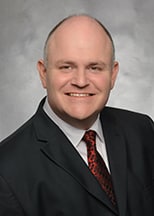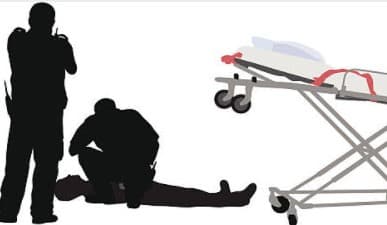By Robert Asa Crook, Esq.
Every year since 2000, World First Aid Day has been observed on the second Saturday in September. This year it fell on September 12. World First Aid Day is a great reminder about the importance of first aid. First aid can save lives, reduce suffering, and prevent the development of possible complications.
What happens when good intentions go awry?
Unfortunately, Good Samaritans sometimes find that the old adage, “no good deed goes unpunished,” is true. In some states, the first aid provider can wind up in a courtroom if such aid goes awry. This seems wrong because in these days of uncertainty, we need Good Samaritans more than ever. Luckily, the courts and legislatures recognize their value, too.
“Good Samaritan” laws have developed over time as a way of protecting people who have good intentions and make an honest effort to help others, even where the results go wrong. Without the support of a specific statue, a Good Samaritan has to rely upon situation-specific facts and the limited protections provided by case-developed law.
Offering aid to others is a choice.
What if you do not want to be a Good Samaritan? Not a problem, you do not have to be one. Generally, a person is not required to rescue or assist another person who is in danger. If a person does nothing, he or she will not face either a lawsuit or criminal charges. Paradoxically, without an immunity statute, a person who does choose to be a Good Samaritan can face liability for their actions. (Williams v. State of California (1983) 34 Cal.3d 18, 23–24.)
However, even before statutes immunized Good Samaritans, California courts recognized that encouraging people to do nothing while someone else is in peril would be poor public policy.
Consequently, under case law, the duty of a Good Samaritan is of limited duration. A person who performs a voluntary duty is not required to render aid indefinitely. (Baker v. City of Los Angeles (1986) 188 Cal.App.3d 902, 907.) In addition, one Good Samaritan’s voluntary conduct does not create a duty for others to act the same way in similar situations.
California immunizes Good Samaritans who render first aid.
Note that there are situations where a Good Samaritan will render assistance to another and not be protected by statutory immunity. California court decisions try to limit a Good Samaritan’s exposure under a series of case authorities, but those legal decisions do not provide immunity. Only a legislatively enacted statute can shield the Good Samaritan.
Fortunately, when rendering emergency care in California, statutory immunity is provided to persons who give assistance. In 1980, the California state legislature enacted Health and Safety Code §1799.102. The statute says that “no person who in good faith, and not for compensation, renders emergency care at the scene of an emergency shall be liable for any civil damages resulting from any act or omission.” Effectively, this is California’s Good Samaritan Law for providers of first aid.
That said, the path to first aid immunity has not been easy. In 2009, a sharply divided California Supreme Court ruled that section 1799.102 immunities only applied if the Good Samaritan was a health-care worker providing medical care in an emergency situation. The Court’s reasoning was based on common law principles. It held that if a lay person “elects to come to someone’s aid, he or she has a duty to exercise due care. Thus, a ‘Good Samaritan’ who attempts to help someone might be liable if he or she does not exercise due care and ends up causing harm.” (Van Horn v. Watson (2008) 45 Cal. 4th 322.)
Fortunately, the California legislature addressed this quirk in legal interpretation. It clarified that first aid immunity applies to anyone, regardless of profession or training, who renders services in good faith. In addition, the legislature expanded the statute to protect people who offer urgent assistance in non-medical scenarios, too (including, for example, helping someone out of a vehicle, or out of oncoming traffic in an emergency situation).
To be protected under the statute, the Good Samaritan must do all of the following:
- Render emergency care in good faith without expecting compensation.
- Render care outside of places where medical care is usually offered.
Act without intentional, grossly negligent, or wanton misconduct. Gross negligence is “voluntary and conscious conduct by a person with knowledge, at the time of conduct, that the conduct is likely to be harmful to the health or well-being of another person.” This means, for example, that a Good Samaritan could be found grossly negligent if his or her actions created the danger or medical emergency in the first place, or if the Samaritan tries to help, but then abandons the victim.
- Not touch or give care to a conscious person who refuses it. If the person refuses care or withdraws consent at any time, the Good Samaritan should step back and call for more advanced medical personnel, or call 911.
In a year of major hurricanes, fires, a pandemic, and civil unrest, it is easy to find people requiring emergency assistance. It is rarer to find those willing to provide urgent assistance to those in need. Fortunately, statutory immunity in California recognizes the importance of Good Samaritans when they render first aid to others. If you find yourself in a position where you are called upon to act in an emergency, know that the law is on your side, regardless of the ultimate outcome. Health and Safety Code §1799.102 is expansive, and it is meant to encourage life-saving interventions by protecting those who provide it.

He earned his Bachelor of Arts at the University of California, Los Angeles, magna cum laude and then acquired his Juris Doctor from the University of California, Hastings College of the Law. Mr. Crook is registered to practice in all California courts, the United States District Court (Eastern, Southern, and Central Districts), and the United States Court of Appeals (Ninth Circuit).
As part of his commitment to provide quality legal services to the community, Mr. Crook volunteers his time as an arbitrator and judge pro tem for the Los Angeles Superior Court. He is also on the Board of Directors and is a regular speaker for the Pasadena Society of Artists.

